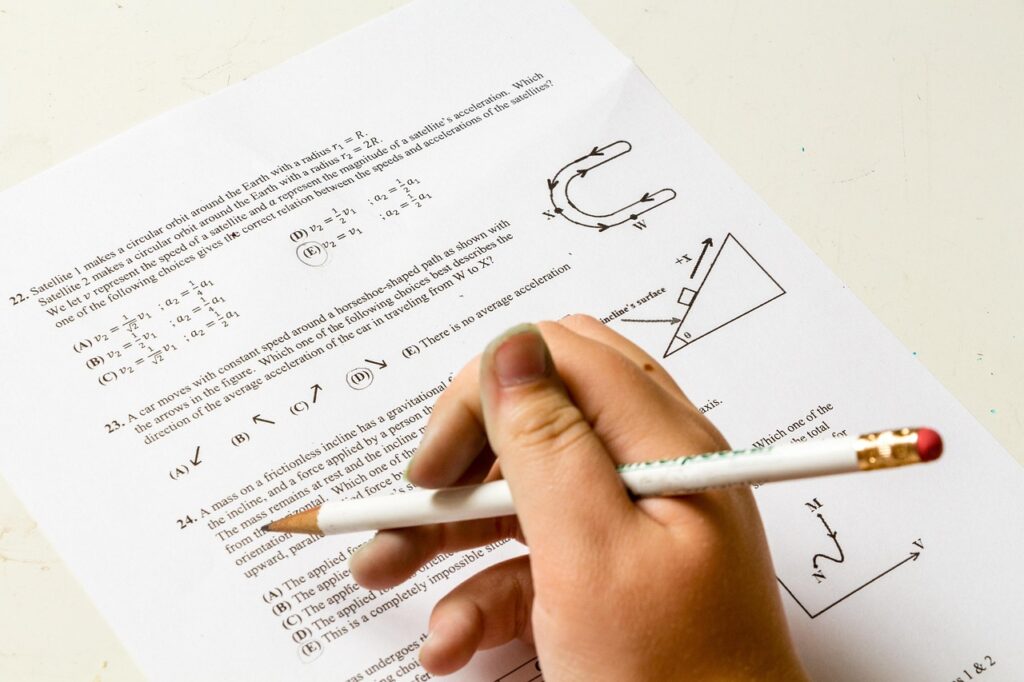In exams, online quizzes, and even logic-based interviews, one common type of question often appears: “Which of the following statements is true?” This format tests your ability to read carefully, compare subtle wording, and apply logical thinking to choose the correct answer. It’s not just about memorizing facts—it’s about understanding what’s actually being asked. These questions may seem simple at first glance, but one misplaced word or overlooked detail can lead you to choose the wrong option. That’s why it’s important to know how these questions are structured, what traps to avoid, and how to reason your way toward the right answer.

Why These Questions Appear in Exams
Examiners use this format to assess more than just knowledge. They want to see if you can distinguish fact from fiction under pressure. You’ll find it across multiple disciplines—from medical entrance tests to science competitions and critical thinking assessments. Each variation aims to test your ability to notice slight differences between options.
These questions are especially common in
- University entrance exams (e.g., BMAT, Oxbridge)
- Verbal reasoning sections
- Critical thinking assessments
- Technology and medical interviews
How to Identify the True Statement
Understanding how to approach these questions gives you a major advantage. Instead of guessing, you apply logic to narrow down your choices.
Here’s how to improve your accuracy:
- Read the entire question and all options carefully
- Look for contradictions within the answer choices
- Identify trigger words like “always,” “never,” or “only”—these ”are often false
- Watch out for opinion-based wording (e.g., “best,” “worst,” “outdated”)
These small details often reveal which statement is actually true.
Common Pitfalls to Avoid
It’s easy to rush through these questions and make mistakes—especially under time pressure. Most wrong answers happen not because of lack of knowledge, but because of poor reading or hasty decisions.
Here’s what to watch out for:
- Selecting the first answer that sounds correct
- Overlooking “All of the above” or “None of the above” options
- Failing to compare wording carefully between answers
- Trusting your opinion instead of logic

F1Digitals, pixabay
Example Questions with Explanations
Let’s break down some real-style questions and explain how to choose the correct answer.
- Which of the following statements is true of cookies?
- Cookies are small blocks of data
- Cookies are created by web servers
- Cookies save browsing info
- All of the above ✅
✔Answer: All the listed statements are factually correct. That makes “all of the above” the true answer.
- Which of the following statements is true concerning data selection?
- It happens after data collection
- It happens at the same time
- It happens before data collection. ✅
- It happens instead of data collection
✔Answer: Data must be selected before collection, making C the only true statement.
- Which of the following statements about mentoring is true?
- A mentor should always be older
- Mentoring is outdated
- Mentoring is the best method
- Mentoring is always effective
- None of the above ✅
✔Answer: All choices are opinions, not factual statements. “None of the above” is the only true option.
Tips to Boost Accuracy on These Questions
Practicing logic-based elimination and time control will help you avoid common errors. Here are a few proven strategies:
- Eliminate false answers first to narrow down choices
- Look for words like “because,” “due to,” or “instead” to test cause-and-effect logic
- Double-check wording if options sound very similar
- Stay calm and avoid rushing, especially on “all of the above” questions
Final Thoughts
These types of questions reward careful reading, not speed. By understanding their structure, you can reduce mistakes and improve your test performance. Whether you’re preparing for a university exam or practicing logic skills, the ability to spot a true statement among tricky phrasing is essential. Focus on reading carefully, reasoning clearly, and answering confidently.
Share this content:













Post Comment
You must be logged in to post a comment.